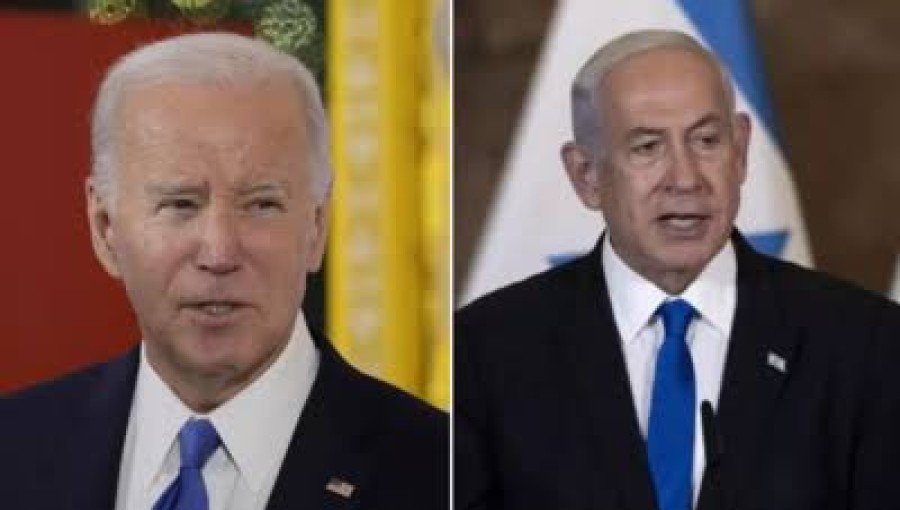In response to a warning from US President Joe Biden regarding a potential major ground operation in the Gaza city of Rafah, Israeli Prime Minister Benjamin Netanyahu has defiantly declared that Israel will "stand alone" if necessary to achieve its goals in the ongoing conflict. Netanyahu's comments came amidst escalating tensions between the two allies, with Washington signaling potential consequences for Israeli actions.
During a speech commemorating Holocaust Remembrance Day, Netanyahu emphasized Israel's historical resilience in the face of adversity. He stated, "If Israel is forced to stand alone, Israel will stand alone," reaffirming the nation's determination to defend itself against perceived threats. Netanyahu's remarks underscored Israel's commitment to its objectives, despite potential diplomatic repercussions.
The United States, a longstanding ally of Israel, provides substantial military aid to Tel Aviv annually. However, Biden's administration faces mounting pressure, both domestically and internationally, over the Israeli military's actions in Gaza. Concerns over civilian casualties and human rights violations have led to calls for restraint and accountability.
In the midst of these tensions, Israeli forces initiated a ground operation in Rafah, Gaza, drawing condemnation from numerous countries and international organizations. The move has exacerbated an already dire humanitarian situation, with thousands of Palestinians fleeing the area amid reports of injuries and casualties.
The current escalation follows months of violence, with Hamas launching a significant military operation against Israel last October. In response, Israel intensified airstrikes and ground attacks on Gaza, resulting in a staggering death toll and widespread devastation. The ongoing conflict has claimed the lives of over 40,000 Palestinians, predominantly civilians, and left more than 70,000 others injured.
As the situation continues to unfold, the international community remains deeply concerned about the escalating violence and its humanitarian impact. Calls for dialogue, de-escalation, and respect for international law persist, as efforts to reach a lasting peace remain elusive in the volatile region.





























Comment: